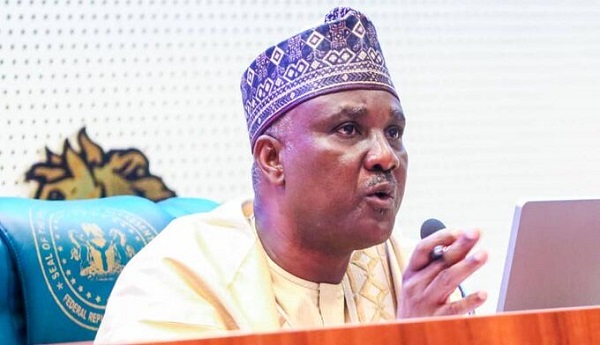The Speaker of the House of Representatives, Abbas Tajudeen, stated on Monday that approximately 80 percent of the current insecurity in Nigeria’s North Western region can be traced to the activities of illegal miners.
Tajudeen expressed concern over the severe poverty and deprivation faced by local communities despite the region’s mineral wealth.
Speaking at the start of an investigative hearing on illegal mining in the solid minerals sector, the Speaker highlighted the significant socio-economic challenges posed by illegal mining activities in Nigeria. He noted the adverse effects on ecosystems and the increased poverty among peasant farmers who rely on environmental resources for their livelihood.
Nigeria is endowed with rich solid mineral deposits that should benefit the nation and its citizens. However, Tajudeen lamented that much of this wealth has been stolen by criminal elements. Reports indicate that around 80 percent of mining in the North West is conducted illegally, fueling community violence and instability.
The Speaker expressed his deep concern for the mining communities in Nigeria, which suffer from economic and social hardships due to years of neglect and environmental degradation. Unsafe mining practices by illegal miners have led to severe air and water pollution, destroying farmlands and reducing the value of crops and economic trees.
Illegal mining underscores fundamental social, institutional, and structural problems within the country, Tajudeen added. The investigative hearing aims to provide guidance on curbing illegal mining and assessing the role of regulators in enforcing mining standards. The House of Representatives is committed to addressing illegal mining practices and ensuring compliance with the Nigeria Minerals and Mining Act (Amendment) Bill and the Nigeria Solid Mineral Development Company (Establishment) Bill, with a public hearing scheduled for July 17, 2024.
Hon. Gaza Jonathan Gbefwi, Chairman of the House Committee on Solid Minerals, revealed that Nigeria loses over $9 billion annually due to illegal mining. He pointed out that only a few licensed miners contribute to government revenue through a 3 percent royalty. Gbefwi emphasized the substantial risks illegal mining poses to the nation’s economy, environment, and security, jeopardizing the sustainability of the mineral sector and causing significant revenue loss.
“It is imperative that we take urgent and decisive steps to address this issue,” Gbefwi stated. He underscored the parliament’s concern over the loss of revenue and the negative impacts of illegal mining, which have led to insecurity and violent conflicts over mining sites.
The public hearing provides a platform for stakeholders, experts, and affected communities to share insights and recommendations. Gbefwi called for collaboration and immediate action to revitalize and develop the solid minerals sector for the benefit of all Nigerians.



